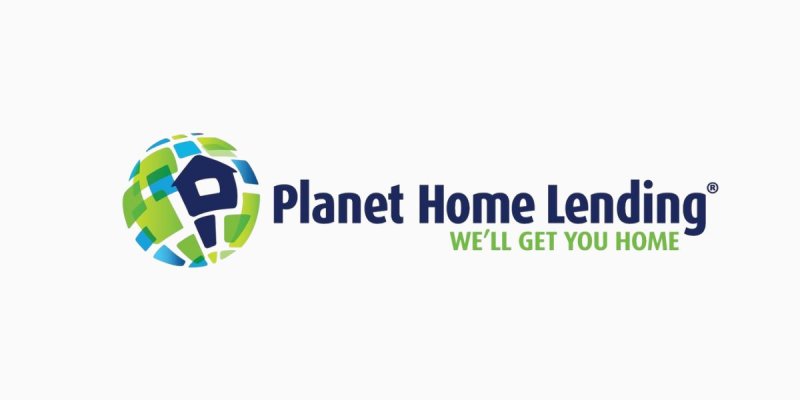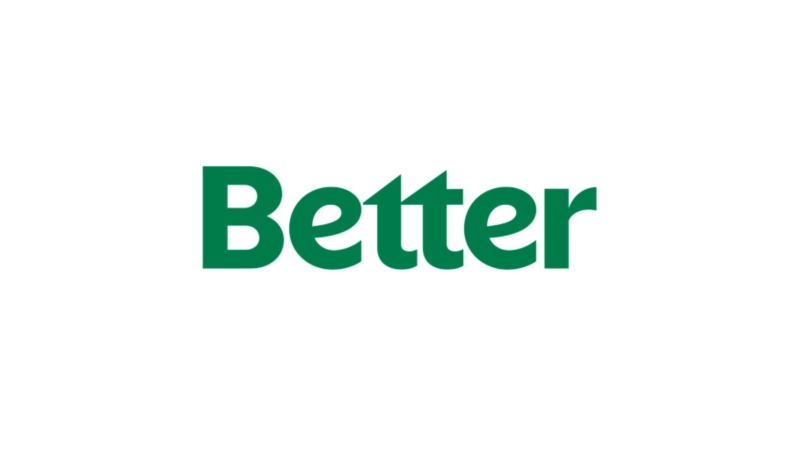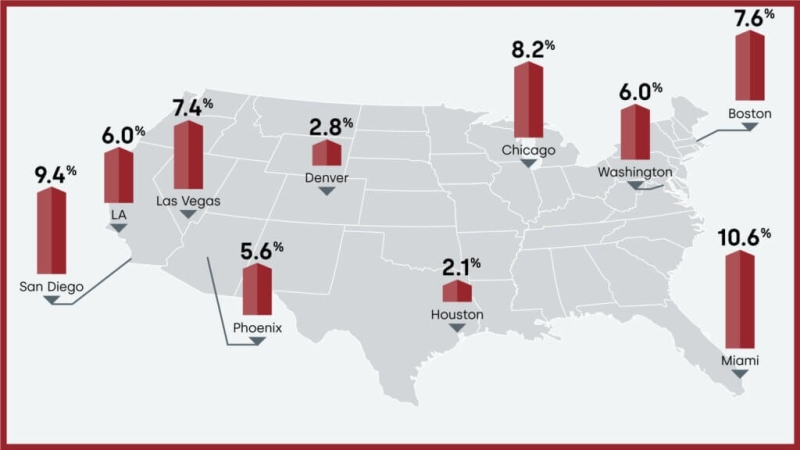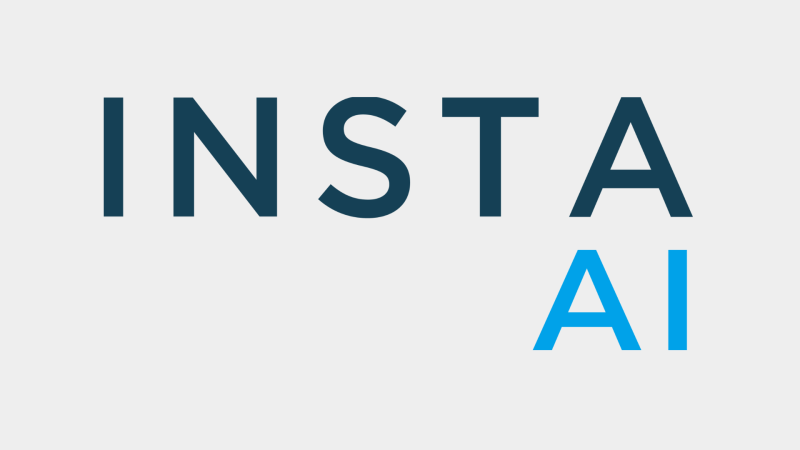Advertisement
National Mortgage Professional Magazine Presents ... Mortgage Marketing Roundtable Discussion 2019

Marketing can be seen as the foundation of the entrepreneurial mortgage spirit. One needs to get their name out to the consuming masses and in order to do so, need to implement the very vital function of marketing in their diverse business plan. The marketing vehicle has taken on a number of shapes and forms over the years, from the ever-expanding digital arm of marketing, to the time-tested print marketing, to snail mail and printed mail, all the way to old-fashioned word of mouth.
And while there is no one single proven method to market one’s goods and services, many have come down the pipeline over the years proclaiming their method as the tried and true path in which to drive customers through the door. Many have coached, led classes, delivered seminars and Webinars, but no one can take claim to the Iron Throne of “Marketing Guru,” although many claim ownership over that distinction.
In conjunction with our Special Focus on “It’s All About Marketing," National Mortgage Professional Magazine was able to get some of the industry’s top marketing minds together to share their ideas on a number of marketing concepts and ideas that impact the ever-shifting mortgage industry.
Let’s meet our panel as they share their words of wisdom and advice, imparting their years of industry experience in the field of marketing, and sharing their knowledge with our readership …
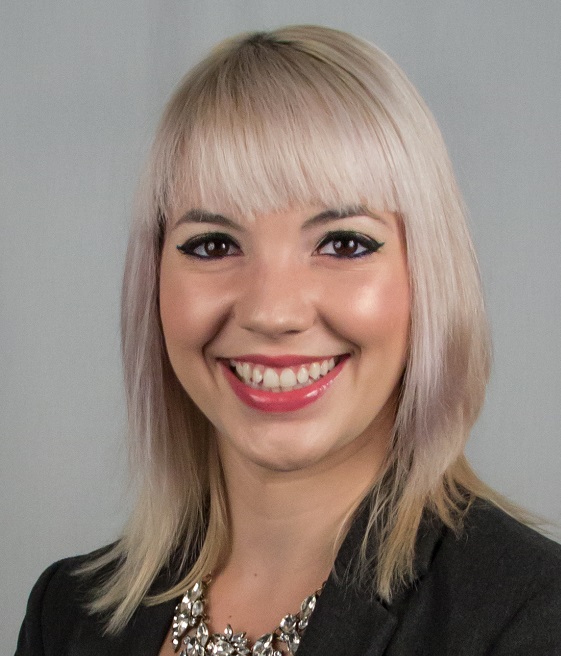 Roundtable participants …
Roundtable participants …
Erica LaCentra • RCN Capital
Erica LaCentra serves as director of marketing for RCN Capital, responsible for planning, developing and implementing the company’s marketing plan, as well as overseeing the company’s marketing department. Joining RCN Capital in 2013, Erica led a strategic rebrand to position the company for nationwide expansion. Erica’s ongoing efforts have rapidly expanded RCN’s customer base and elevated the company to a national brand. Erica is involved in every aspect of RCN’s marketing initiatives, including new program launches, the creation of the company’s traditional and digital media, content development and website management, the management of paid search advertising, social media marketing and email marketing as well as the coordination of tradeshow sponsorships and event involvement. Erica currently serves as a member of the American Association of Private Lenders’ (AAPL) Education Advisory Committee, the Marketing & Communications Chair for AREAA Boston, and a member of the REI INK Editorial Board.
 Roundtable participants …
Roundtable participants …Erica LaCentra • RCN Capital
Erica LaCentra serves as director of marketing for RCN Capital, responsible for planning, developing and implementing the company’s marketing plan, as well as overseeing the company’s marketing department. Joining RCN Capital in 2013, Erica led a strategic rebrand to position the company for nationwide expansion. Erica’s ongoing efforts have rapidly expanded RCN’s customer base and elevated the company to a national brand. Erica is involved in every aspect of RCN’s marketing initiatives, including new program launches, the creation of the company’s traditional and digital media, content development and website management, the management of paid search advertising, social media marketing and email marketing as well as the coordination of tradeshow sponsorships and event involvement. Erica currently serves as a member of the American Association of Private Lenders’ (AAPL) Education Advisory Committee, the Marketing & Communications Chair for AREAA Boston, and a member of the REI INK Editorial Board.
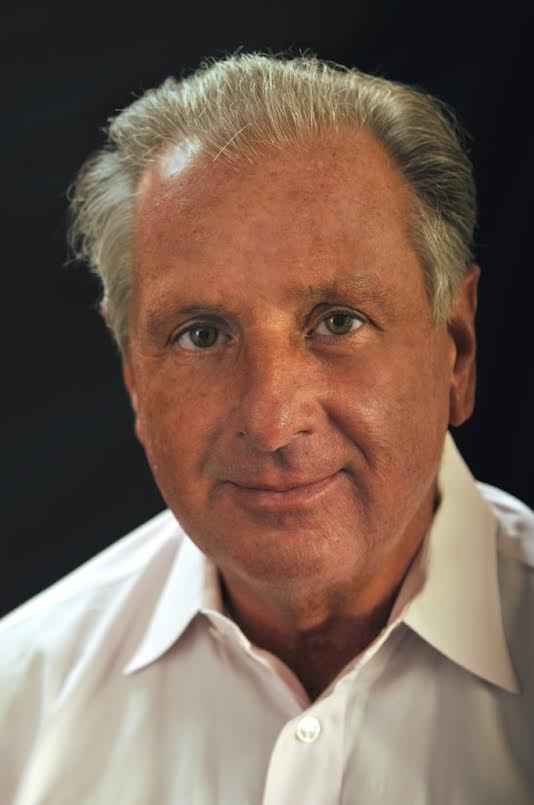 Ralph LoVuolo
Ralph LoVuoloRalph LoVuolo is an author, speaker and coach to the mortgage industry. He has more than 60 years in “the business” of mortgages. There is almost no act that occurs in a mortgage company that he has not participated in and in some cases, he was a pioneer. He held in his hands the first GNMA MBS that was issued. He will tell you that story at the drop of a hat. He has started, either for himself or for others, nine mortgage companies. He has told the stories of his interaction with his father that will leave you laughing in disbelief. He extensively writes and speaks about all phases of the mortgage industry both to his coaching clients and groups throughout the USA. You should call him at (917) 576-1230, but before you do, look him up on LinkedIn, YouTube, or his Web site (MortgageGodfather.com).
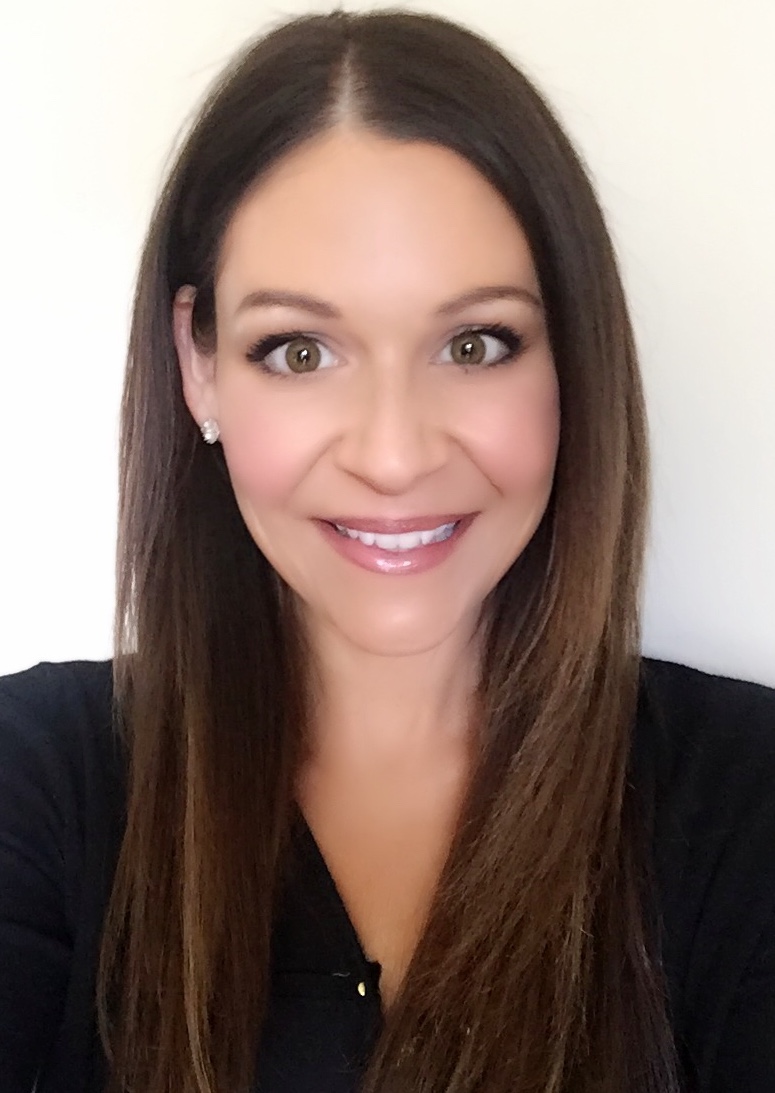 Anna Pambianchi • American Financial Resources
Anna Pambianchi • American Financial ResourcesA career marketer with nearly two decades of experience, Anna Pambianchi is the senior marketing manager at American Financial Resources (AFR). Anna’s track record of success includes brand positioning, content marketing, copywriting/editing, Web site development, thought leadership campaigns, and targeted sales tools. She has managed segmented strategy development and roll-out in 12 vertical markets for a national graphics company, managed marketing for two different product divisions for a consumer electronics leader, and coordinated all U.S. marketing communications for a global diagnostic company. Anna recently brought her skills to the mortgage industry, joining AFR in 2018, and now manages all marketing efforts for the wholesale lender by combining big picture vision with detailed execution. Anna is a member of the American Marketing Association (AMA).
 Andrew Schrage • Money Crashers
Andrew Schrage • Money CrashersAndrew Schrage is the CEO and co-founder of Money Crashers, a personal finance Web site. Its mission is to educate its readers and subscribers on how to make better financial decisions. The site covers traditional topics like how to save more money, the importance of investing for the future, and the dangers of credit card debt. But Money Crashers also tries to help its readers with items that are a little outside of traditional personal finance, such as starting a small business, a variety of lifestyle topics, and how to invest in real estate. Schrage loves to play hockey in his free time.
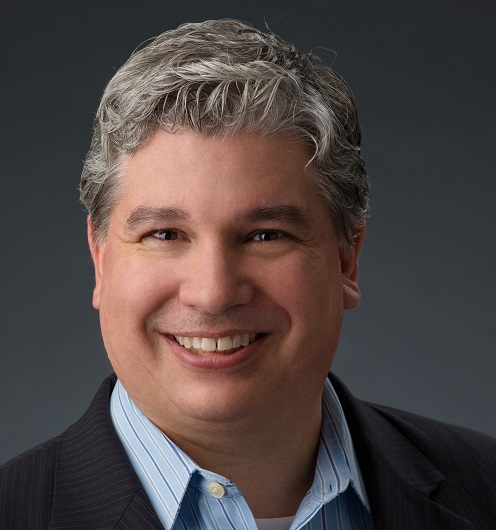 Tom Shaw • elevenX Marketing
Tom Shaw • elevenX MarketingTom Shaw is managing director and founder of elevenX Marketing, working with CEOs, executives and marketing leaders to grow their revenue by creating omni-channel marketing strategies and delivering campaigns with an extremely talented team. Tom has worked as the most senior marketing executive for many public, private and start-up organizations. His experience extends from agency to early phase start-ups to leading marketing for mortgage originators such as New Century, Option One Mortgage (H/R Block), Guidance Residential and Carrington Mortgage Holdings. Tom has managed marketing teams ranging from three to more than 100 associates and budgets from $3 million to in excess of $100 million. He has negotiated sponsorship contracts and activation plans with MLB, NHL, NBA, NASCAR and many more. Tom enjoys speaking engagements at mortgage industry conferences, marketing events and has been interviewed by trade press and national news outlets including the Wall Street Journal, New Your Times and the local press. Tom is a fully-certified scuba diver, soccer coach and motorcycle enthusiast with fantastic wife, Kris and four wonderful daughters.
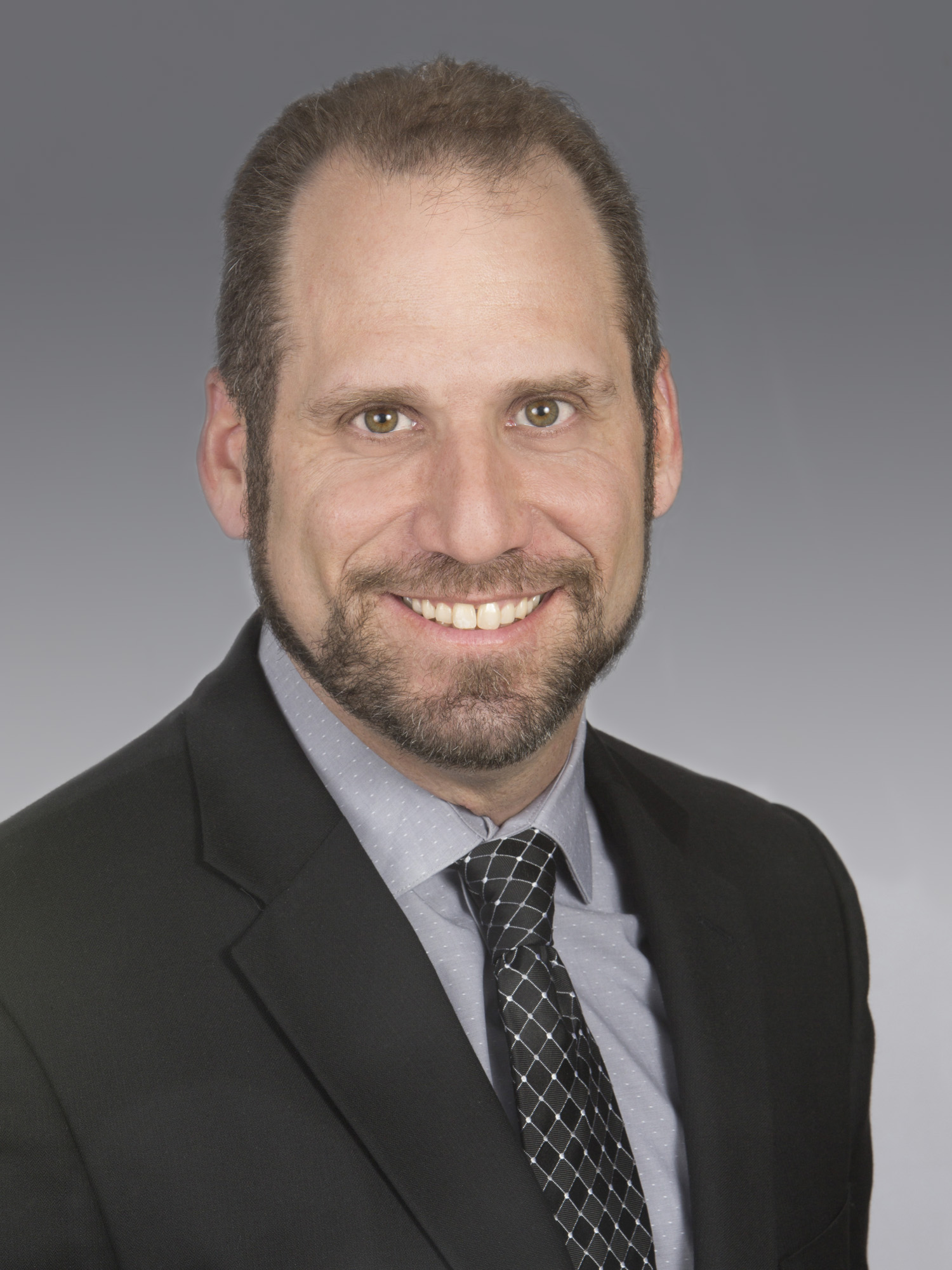 Steven Winokur • Angel Oak Companies
Steven Winokur • Angel Oak CompaniesSteven Winokur is the Chief Marketing Officer for Angel Oak Companies and oversees all marketing and branding initiatives for the firm and its affiliated companies. His primary focus is promoting the power of non-QM lending and establishing Angel Oak as the preeminent firm in that space. Steven has more than 25 years of experience in marketing and branding in both corporate and agency environments. Prior to Angel Oak, Steven was vice president of marketing for Buyers Protection Group, a national home warranty/home inspection firm. Prior to that, he was the assistant vice president of marketing and brand equity for United Guaranty. For more than 10 years prior to that, Steven was a partner in two different brand and marketing communications agencies.
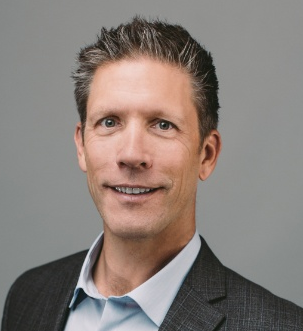 Geoff Zimpfer • Movement Mortgage & Mortgage Marketing Institute
Geoff Zimpfer • Movement Mortgage & Mortgage Marketing InstituteGeoff Zimpfer is a former national sales trainer with Tony Robbins and has been in the mortgage industry since 2003. As a successful mortgage originator, he consistently closed 120 loans per year. He's a national sales trainer and coach with Movement Mortgage, founder of the Mortgage Marketing Institute and host of the highly rated podcast Mortgage Marketing Radio.
 The roundtable …
The roundtable …To what markets does your company/firm focus on? What methods do you find the most success in reaching these markets?
Anna Pambianchi: AFR Wholesale is a full-service mortgage lender serving the wholesale and correspondent channels with their residential financing needs. We find that combining digital marketing–including our own online servicing portal, on-demand education training, video content and targeted e-mail campaigns–with good old-school personal connection tactics, provides the most success. The mortgage business is becoming even more technology-driven for both the consumer and broker alike, especially with the development of automated broker-focused origination platforms.
However, to be successful, it is vitally important to be able to create and maintain a personal connection with clients. That’s not to say you cannot utilize technology to foster and further develop those relationships, but talking with folks at events, participating in compelling live discussions on relevant industry topics, picking up the phone and actually speaking to people, sending out hand-written note cards … in my opinion, those things can’t–and shouldn’t–be replaced by technology. After all, the mortgage business is all about bringing families home and that, in and of itself, is such a personal mission that it demands personal connection.
Tom Shaw: At elevenX Marketing, we built an organization that companies want to work with using marketing to develop their business, while controlling expense. We accomplish this through fixed pricing packages, pay for deliverables and performance. Our successful clients are marketing departments that are small- to mid-sized, under-resourced or lack the ability to source expertise in marketing channels their company requires to grow. Since engaging our combined knowledge is a more effective use of capital than hiring a dedicated full-time equivalent (FTE), the returns are phenomenal. It could be as straightforward as taking their social media to the next level, expanding lead generation or providing a trade event plan. We have more than 50 years of combined marketing experience for retail (distributed and centralized) portfolio retention, wholesale (TPO) and correspondent lending. Also, expertise in servicing communications that enhance the customer experience and assist those organizations to conserve capital in a thin margin business.
Tom Shaw: At elevenX Marketing, we built an organization that companies want to work with using marketing to develop their business, while controlling expense. We accomplish this through fixed pricing packages, pay for deliverables and performance. Our successful clients are marketing departments that are small- to mid-sized, under-resourced or lack the ability to source expertise in marketing channels their company requires to grow. Since engaging our combined knowledge is a more effective use of capital than hiring a dedicated full-time equivalent (FTE), the returns are phenomenal. It could be as straightforward as taking their social media to the next level, expanding lead generation or providing a trade event plan. We have more than 50 years of combined marketing experience for retail (distributed and centralized) portfolio retention, wholesale (TPO) and correspondent lending. Also, expertise in servicing communications that enhance the customer experience and assist those organizations to conserve capital in a thin margin business.
We see the following marketing foundations in a successful marketing strategy. The critical point is that there is not a "silver bullet" or "one thing" that will take your company from A to B. A novice marketer will think that using Facebook, offering this single product or having one flyer makes or breaks your origination. It's the strategy and your application for refinement, optimization and attention to the details. Success for the following verticals comprises of the following integrated marketing channels: Consumer Direct, Customer/Portfolio Retention and Distributed Retail Branch.
 Is it better to focus on the general mortgage marketplace overall, or focus on a niche product or market?
Is it better to focus on the general mortgage marketplace overall, or focus on a niche product or market?
Erica LaCentra: The mortgage industry is highly competitive and there is no shortage of lenders or mortgage brokers. It’s hard to focus on the general mortgage marketplace and do it well. Chances are, individuals who take that approach will get beat out time and time again by competitors that specialize in one product or one area and are known for their expertise in that area.
 Is it better to focus on the general mortgage marketplace overall, or focus on a niche product or market?
Is it better to focus on the general mortgage marketplace overall, or focus on a niche product or market?Erica LaCentra: The mortgage industry is highly competitive and there is no shortage of lenders or mortgage brokers. It’s hard to focus on the general mortgage marketplace and do it well. Chances are, individuals who take that approach will get beat out time and time again by competitors that specialize in one product or one area and are known for their expertise in that area.
For example, a large national lender may have a hard time competing with a local lender. Clients typically have a greater comfort level with a local lender because they feel the lender understands their market better. Plus because of their specific knowledge of their area, a local lender may be able to offer more aggressive terms and beat out a national lender. That’s not to say folks cannot offer multiple products or cover numerous markets. However, your reputation is everything. If you offer a variety of products, but you don’t know them in and out, you’re not providing a good experience for your customers. Not only will you not secure repeat business, but chances are they will talk to others about their negative experience, damaging your reputation in the process. I strongly believe that regardless of what you choose to focus on, whether it be a specific market/niche product or the general mortgage marketplace, just make sure you can do it extremely well.
Andrew Schrage: Focusing on niche products can earn you a lot of money in a short amount of time. Following trends in the marketplace and in the economy, and keeping up with the latest mortgage products is important to be able to serve the trends in the market better than your competition. For example, the mortgage brokers who concentrated on bad credit, sub-580 credit scores, no doc loans, etc. made significantly more in that short period of time that those products were popular. But focusing on traditional mortgage types such as conventional, FHA, VA or USDA will sustain you in the long run. When the niche loan types leave the market or are discontinued, the loan officers who have established themselves as experts in these niche areas are left scrambling. As a result, traditionally, those who have focused on the long-term have survived much better financially.
Steven Winokur: I am a big proponent of focus. Back when I was a partner in a marketing agency, we created a model called “The Law of Focus.” It basically stated that the more you focused on a differentiated niche, the more successful you would be. I still believe that to be true–rather than be a generalist, focus on a niche product or market. What people fail to realize is that will not preclude you from doing loans outside that niche. However, you will get a much higher percentage of loans within your perceived niche. It also gives you something unique to speak to your referral partners about. If you’re the same as everyone else, then getting your referral partners to pay attention is really difficult. For example, if your focus is on the general mortgage marketplace, then how do you appear different to real estate agents? Because of your service? Great rates? Or perhaps speaking to them about your focus on self-employed borrowers. Now you have something different to create interest.
 How can mortgage brokers track and determine their ROI on social media?
How can mortgage brokers track and determine their ROI on social media?
Erica LaCentra: On a basic level, most social media platforms (Facebook, Twitter and LinkedIn) offer analytics on organic posts, as well as paid advertising for business accounts. Mortgage brokers can utilize these free tools to monitor views of posts, as well as keep tabs on customer engagement. However, if a mortgage broker is looking drive more business through social media marketing and plans on spending a significant amount of money, they should develop a social media marketing funnel with a specific goal in mind with easily trackable conversion points along the way. If the broker is looking to attract new customers, it could be as simple as developing a marketing funnel that starts by getting the customer to regularly engage with content that promotes brand awareness, such as downloading a white paper or viewing an educational video content. The broker can make each step in the funnel a conversion point and use each piece of content as a way to gauge the customer’s interest and ultimately guide the customer to the point of submitting a deal.
Tom Shaw: Social media is very accessible and leads companies to believe "posting" is easy and does not require a skill. However, to get an ROI on social media, you need to have experts running your social media … critical experts. Not your closing manager, administrative assistant or the person who also runs trade events, but an expert dedicated to social media. Here is the recipe: Implement social media pixels; make sure your tracking code for Google Analytics is in place; make sure your links from Facebook or others use the Google Analytics URL builder to track your campaign; use the integrated lead generation forms in the social channel if they have them built in; and use a phone number you can track across each social channel.
Andrew Schrage: Focusing on niche products can earn you a lot of money in a short amount of time. Following trends in the marketplace and in the economy, and keeping up with the latest mortgage products is important to be able to serve the trends in the market better than your competition. For example, the mortgage brokers who concentrated on bad credit, sub-580 credit scores, no doc loans, etc. made significantly more in that short period of time that those products were popular. But focusing on traditional mortgage types such as conventional, FHA, VA or USDA will sustain you in the long run. When the niche loan types leave the market or are discontinued, the loan officers who have established themselves as experts in these niche areas are left scrambling. As a result, traditionally, those who have focused on the long-term have survived much better financially.
Steven Winokur: I am a big proponent of focus. Back when I was a partner in a marketing agency, we created a model called “The Law of Focus.” It basically stated that the more you focused on a differentiated niche, the more successful you would be. I still believe that to be true–rather than be a generalist, focus on a niche product or market. What people fail to realize is that will not preclude you from doing loans outside that niche. However, you will get a much higher percentage of loans within your perceived niche. It also gives you something unique to speak to your referral partners about. If you’re the same as everyone else, then getting your referral partners to pay attention is really difficult. For example, if your focus is on the general mortgage marketplace, then how do you appear different to real estate agents? Because of your service? Great rates? Or perhaps speaking to them about your focus on self-employed borrowers. Now you have something different to create interest.
 How can mortgage brokers track and determine their ROI on social media?
How can mortgage brokers track and determine their ROI on social media? Erica LaCentra: On a basic level, most social media platforms (Facebook, Twitter and LinkedIn) offer analytics on organic posts, as well as paid advertising for business accounts. Mortgage brokers can utilize these free tools to monitor views of posts, as well as keep tabs on customer engagement. However, if a mortgage broker is looking drive more business through social media marketing and plans on spending a significant amount of money, they should develop a social media marketing funnel with a specific goal in mind with easily trackable conversion points along the way. If the broker is looking to attract new customers, it could be as simple as developing a marketing funnel that starts by getting the customer to regularly engage with content that promotes brand awareness, such as downloading a white paper or viewing an educational video content. The broker can make each step in the funnel a conversion point and use each piece of content as a way to gauge the customer’s interest and ultimately guide the customer to the point of submitting a deal.
Tom Shaw: Social media is very accessible and leads companies to believe "posting" is easy and does not require a skill. However, to get an ROI on social media, you need to have experts running your social media … critical experts. Not your closing manager, administrative assistant or the person who also runs trade events, but an expert dedicated to social media. Here is the recipe: Implement social media pixels; make sure your tracking code for Google Analytics is in place; make sure your links from Facebook or others use the Google Analytics URL builder to track your campaign; use the integrated lead generation forms in the social channel if they have them built in; and use a phone number you can track across each social channel.
The best way to generating ROI requires these essential items: An expert in organic and paid social media; a content strategy for posting, building credibility and engaging your audience; tracking (utilizing Facebook, LinkedIn and other pixels) that measure the direct impact of investment in campaigns; use Google Analytics or another analytics suite; use the Google Analytics URL builder to track your campaign from your page, your ads and your posts; and use a unique phone numbers to track inbound calls by social channel.
Geoff Zimpfer: In a recent podcast episode, Mortgage Broker Alex McFadyen, “The Mortgage Pug,” shared how his brand on social media has grown to the point where he now receives an average of five inquiries per week from people who have chosen him as their lender. There is little to no selling and minimal price resistance. They show up ready to move forward with Alex. How does this happen? ROI from social media is not about the vanity metrics of “Likes” and “Followers.” Even in a content world of online videos, selfies and Instagram filters, human connection is what people crave. Alex wins clients from his social media presence because he demonstrates his knowledge and makes the experience fun for people which; creates connection and sharing. The ROI to measure first on social media is your own level of personal engagement. Are you actively creating and participating in conversations? Are you sharing helpful, quality content?
Today, having an effective social media presence is a life skill because we now build customer relationships initially not face-to-face, but through content. Perhaps the most important social media ROI to measure is your level of skill in fostering engagement with people that leads to trust, which culminates in people choosing you. The most automated company isn’t going to win and the best technology isn’t going to win. The most human company will win.
 What can mortgage brokers share to help craft their company and personal brand?
What can mortgage brokers share to help craft their company and personal brand?
Ralph LoVuolo: Every day, we read about new conceptions, theories and advances in technology, along with new techniques, new inventions and new methods to old challenges. Every one of them start with an idea. These “things” advance science, philosophy, psychology, interpersonal relationships, families, individuals and a list that would encompass every single thing that exists, plus some things that we don’t know to exist, mostly because they have yet to be discovered. In the year 1900, it was supposedly postulated by Lord Kelvin, one of the most important physicists of his time, “There is nothing new to be discovered in physics now. All that remains is more and more precise measurement.” We all now know that it matters not who said it, but what we know is that at the time it was said, Albert Einstein was working on the formulation of an equation that would change the way all mankind understood about the reality that they took so much for granted.
Ideas are what we must share. Ideas cause change, some for good and some not. Ideas help us all. Ideas, when well-thought out, can create new actions and stop others. What we must share are ideas that help our referral sources do more, produce more, create more, impact more and help more. There is nothing more powerful than ideas and we have an obligation to share them.
Geoff Zimpfer: In the absence of branding, you’re left with marketing in the same way your competitors do. When you do that, you’re perceived to be the same as everyone else which is a race to competing on price. The formula for branding success isn’t simply finding a passion or even a niche. It’s finding the magical intersection of place and space that will give you the best shot at becoming known and successful.
Geoff Zimpfer: In a recent podcast episode, Mortgage Broker Alex McFadyen, “The Mortgage Pug,” shared how his brand on social media has grown to the point where he now receives an average of five inquiries per week from people who have chosen him as their lender. There is little to no selling and minimal price resistance. They show up ready to move forward with Alex. How does this happen? ROI from social media is not about the vanity metrics of “Likes” and “Followers.” Even in a content world of online videos, selfies and Instagram filters, human connection is what people crave. Alex wins clients from his social media presence because he demonstrates his knowledge and makes the experience fun for people which; creates connection and sharing. The ROI to measure first on social media is your own level of personal engagement. Are you actively creating and participating in conversations? Are you sharing helpful, quality content?
Today, having an effective social media presence is a life skill because we now build customer relationships initially not face-to-face, but through content. Perhaps the most important social media ROI to measure is your level of skill in fostering engagement with people that leads to trust, which culminates in people choosing you. The most automated company isn’t going to win and the best technology isn’t going to win. The most human company will win.
 What can mortgage brokers share to help craft their company and personal brand?
What can mortgage brokers share to help craft their company and personal brand?Ralph LoVuolo: Every day, we read about new conceptions, theories and advances in technology, along with new techniques, new inventions and new methods to old challenges. Every one of them start with an idea. These “things” advance science, philosophy, psychology, interpersonal relationships, families, individuals and a list that would encompass every single thing that exists, plus some things that we don’t know to exist, mostly because they have yet to be discovered. In the year 1900, it was supposedly postulated by Lord Kelvin, one of the most important physicists of his time, “There is nothing new to be discovered in physics now. All that remains is more and more precise measurement.” We all now know that it matters not who said it, but what we know is that at the time it was said, Albert Einstein was working on the formulation of an equation that would change the way all mankind understood about the reality that they took so much for granted.
Ideas are what we must share. Ideas cause change, some for good and some not. Ideas help us all. Ideas, when well-thought out, can create new actions and stop others. What we must share are ideas that help our referral sources do more, produce more, create more, impact more and help more. There is nothing more powerful than ideas and we have an obligation to share them.
Geoff Zimpfer: In the absence of branding, you’re left with marketing in the same way your competitors do. When you do that, you’re perceived to be the same as everyone else which is a race to competing on price. The formula for branding success isn’t simply finding a passion or even a niche. It’s finding the magical intersection of place and space that will give you the best shot at becoming known and successful.
Place is a sustainable interest and what you want to be known for. Space is an uncontested or under-occupied niche with enough people to matter. Your place of sustainable interest of course is “mortgage,” but within the mortgage industry, can include loan types like renovation, reverse, FHA, VA, new construction and more. Your space can include demographic niches like first-time buyers, veterans, divorcing couples, seniors, multi-generational families, single parents, investors, first responders and more. The truth is most people are generalists, leaving opportunity for those who decide to pursue a specific niche place and space.
Another under-occupied space is to become the go-to resource for your local community and events, creating content highlighting all the benefits of living in your area. You become known through sharing relevant content, having a unique style or point of view. Going all-in on one social media platform is another way to build your brand and grow audience. Being a known authority and establishing thought leadership people will be more likely to trust, recommend and choose you.
 What marketing methods have you found to yield the highest conversion rate?
What marketing methods have you found to yield the highest conversion rate?
Anna Pambianchi: Search engine optimization, e-mail campaigns and face-to-face interaction with folks at events consistently generate the greatest impact. Video content on social media has also been very effective for us. Again, the key to conversion is to find the perfect balance between creating a human connection, and supporting and nurturing that relationship with various digital touch points along the lead journey. However, if your content isn’t relevant and authentic, it doesn’t really matter how it gets delivered–it simply will not resonate.
Steven Winokur: I’ve always found measuring ROI and determining conversion rates in the mortgage business an interesting challenge. Unless you’re in retail originations, there are so many variables that can come into play. What I’ve seen work well is simply being a true partner to your referral source. What that means is actively being vested in their success. When they’re successful, you’re successful. So providing tools and resources to help your referral partners grow their business. We provide marketing tools that they can use to promote themselves. We send them leads. We assist with their presentations to their referral sources. We have found that to be one of the best marketing methods to yield a conversion rate.
Geoff Zimpfer: I’ve met lenders who succeed with Facebook Ads, online content, Zillow leads and Google Pay-Per-Click ads. Every day, lenders get referrals from agents, their sphere of influence, being active in their local communities and with past clients. Everything works, but not everything works equally well all the time. What works in one market may completely fail in another market. What gets results for one person may not be the right activity for another.
 What marketing methods have you found to yield the highest conversion rate?
What marketing methods have you found to yield the highest conversion rate?Anna Pambianchi: Search engine optimization, e-mail campaigns and face-to-face interaction with folks at events consistently generate the greatest impact. Video content on social media has also been very effective for us. Again, the key to conversion is to find the perfect balance between creating a human connection, and supporting and nurturing that relationship with various digital touch points along the lead journey. However, if your content isn’t relevant and authentic, it doesn’t really matter how it gets delivered–it simply will not resonate.
Steven Winokur: I’ve always found measuring ROI and determining conversion rates in the mortgage business an interesting challenge. Unless you’re in retail originations, there are so many variables that can come into play. What I’ve seen work well is simply being a true partner to your referral source. What that means is actively being vested in their success. When they’re successful, you’re successful. So providing tools and resources to help your referral partners grow their business. We provide marketing tools that they can use to promote themselves. We send them leads. We assist with their presentations to their referral sources. We have found that to be one of the best marketing methods to yield a conversion rate.
Geoff Zimpfer: I’ve met lenders who succeed with Facebook Ads, online content, Zillow leads and Google Pay-Per-Click ads. Every day, lenders get referrals from agents, their sphere of influence, being active in their local communities and with past clients. Everything works, but not everything works equally well all the time. What works in one market may completely fail in another market. What gets results for one person may not be the right activity for another.
However, I do believe that certain principles and strategies can have success in many different markets if they are applied in the right way. Principles don’t change, tactics do. According to the National Association of Realtors, 89 percent of buyers use a Realtor. That means agents are a primary source of high intent, buyer leads. In my experience, interviewing over 100 of America’s top producing loan originators, agent referrals is consistently ranked at the top of their list. Additionally, teaching agent classes is a top of the funnel, high conversion method for acquiring and converting agents to send buyer referrals.
Loan Officer Andy Passmore, with Security Federal Bank in Atlanta, ignited his leads from agents. He hosted three agent classes in three months. From those three classes, he was in front of 135 agents, had 30 face-to-face agent meetings, received 12 buyer referrals and closed $1.2 million in loans. When done correctly, teaching agent classes puts you in the power position, scales your reach, expedites trust and stimulates referrals from agents.
 Have you gone to 100 percent digital marketing efforts or do you still use standard old school techniques? Is there a drastic difference between the two?
Have you gone to 100 percent digital marketing efforts or do you still use standard old school techniques? Is there a drastic difference between the two?
Erica LaCentra: While we have increased our digital marketing efforts at RCN Capital over the past several years, we still rely heavily on more traditional marketing techniques, such as print advertising and event sponsorships. I think this is indicative of the mortgage industry as a whole. I’ve found over my time in this industry that our space has been slower to adopt digital marketing techniques, as well as technology in general than most other industries. Even though digital marketing has become a key part of our marketing mix, I find that the pieces we have decided to employ are still behind general digital marketing trends I see in other industries. That being said, I don’t foresee any industry transitioning to 100 percent digital marketing efforts anytime soon. While digital marketing has significant benefits such as ease of tracking, and simple ways to retarget customers and increase brand awareness, digital marketing still has its flaws. With the amount of digital advertising that is now occurring, it’s not only difficult to stand out from the masses, but also difficult to try to strike a balance between what is effective versus what is intrusive. For the foreseeable future, I see other more traditional forms of marketing being necessary to reach a broader customer base.
Ralph LoVuolo: I have yet to become totally digital in my marketing, but I see my obligation to serve all my present and potential clients in a way that will engage them as they want to engage. When I walk by a table at a trade show and see three people sitting with their smartphones in their hand, necks bent forward, silent, with fingers on a screen, I knew I had to become more digital than I am. It was a great effort not to stop to ask what they were doing individually, but this I know for sure: They were not engaging each other.
Anna Pambianchi: We use an effective combination of both digital marketing and traditional tactics. With everyone’s inbox filling up these days, there is still something to be said for the occasional direct mail piece. And to go one step further, our President Laura Brandao sits down every morning and handwrites note cards to clients, thanking them for their business or congratulating them on a closed loan. This personal touch goes a long way and can never be replaced by an e-mail. That being said, techniques like targeted e-mails with relevant content, social media interaction and convenient online education and training opportunities, help to maintain the connection once it’s been established.
Andrew Schrage: A decade ago, digital marketing still hadn't truly immersed itself in the mortgage industry, so at that time, we were in favor of non-digital marketing efforts. Obviously, things have changed since then in terms of marketing.
Now, we are not 100 percent reliant on social media marketing efforts, but we do use them. That said, we still use tools like cold calling and other non-digital related strategies. We've also had a lot of success with a referral program. Sure, a mortgage is generally a once in a lifetime deal, but getting current customers to recommend family and friends is truly effective. Moreover, consider that the client might want to refinance their loan in a few years. They may want to learn about things like a cash-out refi and other products that most mortgage companies offer. There are a myriad of other situations where a mortgage professional might be needed further on down the road past the initial writing of the original mortgage. So there still exists a true opportunity to use non-digital marketing strategies to grow your business, especially in the long-term. In a nutshell, I have done both and still vacillate between the two as a way to keep trying different things to find what works at that moment in that market. Personally, I’m in a shift back to old school techniques of late.
Tom Shaw: Is there a drastic difference between the two? Marketing requires many touches (high frequency) with an audience to be effective. We see digital as a low-cost, reliable and measurable strategy to reach and acquire customers. It can be controlled and managed well to a daily, weekly or monthly budget. Audiences are mobile and at their desktops, digital should always be a major component of your strategy.
 Have you gone to 100 percent digital marketing efforts or do you still use standard old school techniques? Is there a drastic difference between the two?
Have you gone to 100 percent digital marketing efforts or do you still use standard old school techniques? Is there a drastic difference between the two?Erica LaCentra: While we have increased our digital marketing efforts at RCN Capital over the past several years, we still rely heavily on more traditional marketing techniques, such as print advertising and event sponsorships. I think this is indicative of the mortgage industry as a whole. I’ve found over my time in this industry that our space has been slower to adopt digital marketing techniques, as well as technology in general than most other industries. Even though digital marketing has become a key part of our marketing mix, I find that the pieces we have decided to employ are still behind general digital marketing trends I see in other industries. That being said, I don’t foresee any industry transitioning to 100 percent digital marketing efforts anytime soon. While digital marketing has significant benefits such as ease of tracking, and simple ways to retarget customers and increase brand awareness, digital marketing still has its flaws. With the amount of digital advertising that is now occurring, it’s not only difficult to stand out from the masses, but also difficult to try to strike a balance between what is effective versus what is intrusive. For the foreseeable future, I see other more traditional forms of marketing being necessary to reach a broader customer base.
Ralph LoVuolo: I have yet to become totally digital in my marketing, but I see my obligation to serve all my present and potential clients in a way that will engage them as they want to engage. When I walk by a table at a trade show and see three people sitting with their smartphones in their hand, necks bent forward, silent, with fingers on a screen, I knew I had to become more digital than I am. It was a great effort not to stop to ask what they were doing individually, but this I know for sure: They were not engaging each other.
Anna Pambianchi: We use an effective combination of both digital marketing and traditional tactics. With everyone’s inbox filling up these days, there is still something to be said for the occasional direct mail piece. And to go one step further, our President Laura Brandao sits down every morning and handwrites note cards to clients, thanking them for their business or congratulating them on a closed loan. This personal touch goes a long way and can never be replaced by an e-mail. That being said, techniques like targeted e-mails with relevant content, social media interaction and convenient online education and training opportunities, help to maintain the connection once it’s been established.
Andrew Schrage: A decade ago, digital marketing still hadn't truly immersed itself in the mortgage industry, so at that time, we were in favor of non-digital marketing efforts. Obviously, things have changed since then in terms of marketing.
Now, we are not 100 percent reliant on social media marketing efforts, but we do use them. That said, we still use tools like cold calling and other non-digital related strategies. We've also had a lot of success with a referral program. Sure, a mortgage is generally a once in a lifetime deal, but getting current customers to recommend family and friends is truly effective. Moreover, consider that the client might want to refinance their loan in a few years. They may want to learn about things like a cash-out refi and other products that most mortgage companies offer. There are a myriad of other situations where a mortgage professional might be needed further on down the road past the initial writing of the original mortgage. So there still exists a true opportunity to use non-digital marketing strategies to grow your business, especially in the long-term. In a nutshell, I have done both and still vacillate between the two as a way to keep trying different things to find what works at that moment in that market. Personally, I’m in a shift back to old school techniques of late.
Tom Shaw: Is there a drastic difference between the two? Marketing requires many touches (high frequency) with an audience to be effective. We see digital as a low-cost, reliable and measurable strategy to reach and acquire customers. It can be controlled and managed well to a daily, weekly or monthly budget. Audiences are mobile and at their desktops, digital should always be a major component of your strategy.
Offline techniques are fantastic when used with digital techniques to improve marketing campaigns. There are limitations, such as the more substantial investment and commitment (lack of control) that a marketer must commit and plan. Offline strategies can enhance and further expand a marketing strategy with branding or activation into the customer's work not offered by digital. However, the break point when starting offline is cost, amount of production required and timing to market for small businesses. Digital offers many options, control and an accelerated go to market approach.
Since there is not “one way to manage” your marketing, start with your strengths and move from there. Your best success in marketing starts with knowing your business and working with marketing partners that understand your company and the best marketing opportunities that fit your company strategy.
 Is there anything on the horizon that will assist mortgage professionals in taking their marketing efforts to the next level?
Is there anything on the horizon that will assist mortgage professionals in taking their marketing efforts to the next level?
Ralph LoVuolo: The most powerful marketing tool in the known environment that we live in is LinkedIn. It is seen by almost everyone I meet as the red-headed stepchild, the way to find a job. That idea is the thought that most people are assuming is correct, and it is terribly wrong. There is a power in LinkedIn, that when discovered by the masses will change the way we all do business, find information, engage with those we want to engage with, find out secrets and grow our businesses beyond our imagination.
Andrew Schrage: Digital may dominate, but you should also continue to investigate other previously mentioned forms of advertising, as they're nowhere near dead. You should also monitor your results based on the fact that more of your strategy will probably be digital. Google Analytics is a great tool. You should also consider investing in a marketing team or take more time for yourself to devote to advertising your business. Embrace digital and leverage it to the best of your advantage. Online applications and approvals would be a good place to start. Become highly involved in social media too, whether it's the mainstays like Facebook and Twitter or other sites like Instagram and Pinterest. Create and maintain a stellar Web site that is easily viewed from PCs, Macs and mobile devices, and throw in a blog where you can showcase your experience which will make potential customers more likely to trust you.
Steven Winokur: I think technology and personalization can take marketing efforts to the next level. Technology has allowed mortgage professionals to take more control over their own marketing. New technologies like quality video on a cellphone can allow originators to compete on a level with larger competitors. Being able to send quick simple videos to partners and referral sources will make marketing that much more effective. For example, promoting product updates or pricing changes via a quick video directed at the referral partner stands out more than the typical e-mail blast. Developing additional ways to personalize copy or messaging to a narrow audience will increase results. The concept of personalization has been a topic in the marketing world for a while now. Combining it with new tools and technologies can only drive increased success for mortgage professionals.
 Is there anything on the horizon that will assist mortgage professionals in taking their marketing efforts to the next level?
Is there anything on the horizon that will assist mortgage professionals in taking their marketing efforts to the next level?Ralph LoVuolo: The most powerful marketing tool in the known environment that we live in is LinkedIn. It is seen by almost everyone I meet as the red-headed stepchild, the way to find a job. That idea is the thought that most people are assuming is correct, and it is terribly wrong. There is a power in LinkedIn, that when discovered by the masses will change the way we all do business, find information, engage with those we want to engage with, find out secrets and grow our businesses beyond our imagination.
Andrew Schrage: Digital may dominate, but you should also continue to investigate other previously mentioned forms of advertising, as they're nowhere near dead. You should also monitor your results based on the fact that more of your strategy will probably be digital. Google Analytics is a great tool. You should also consider investing in a marketing team or take more time for yourself to devote to advertising your business. Embrace digital and leverage it to the best of your advantage. Online applications and approvals would be a good place to start. Become highly involved in social media too, whether it's the mainstays like Facebook and Twitter or other sites like Instagram and Pinterest. Create and maintain a stellar Web site that is easily viewed from PCs, Macs and mobile devices, and throw in a blog where you can showcase your experience which will make potential customers more likely to trust you.
Steven Winokur: I think technology and personalization can take marketing efforts to the next level. Technology has allowed mortgage professionals to take more control over their own marketing. New technologies like quality video on a cellphone can allow originators to compete on a level with larger competitors. Being able to send quick simple videos to partners and referral sources will make marketing that much more effective. For example, promoting product updates or pricing changes via a quick video directed at the referral partner stands out more than the typical e-mail blast. Developing additional ways to personalize copy or messaging to a narrow audience will increase results. The concept of personalization has been a topic in the marketing world for a while now. Combining it with new tools and technologies can only drive increased success for mortgage professionals.
This article originally appeared in the May 2019 print edition of National Mortgage Professional Magazine.
About the author


